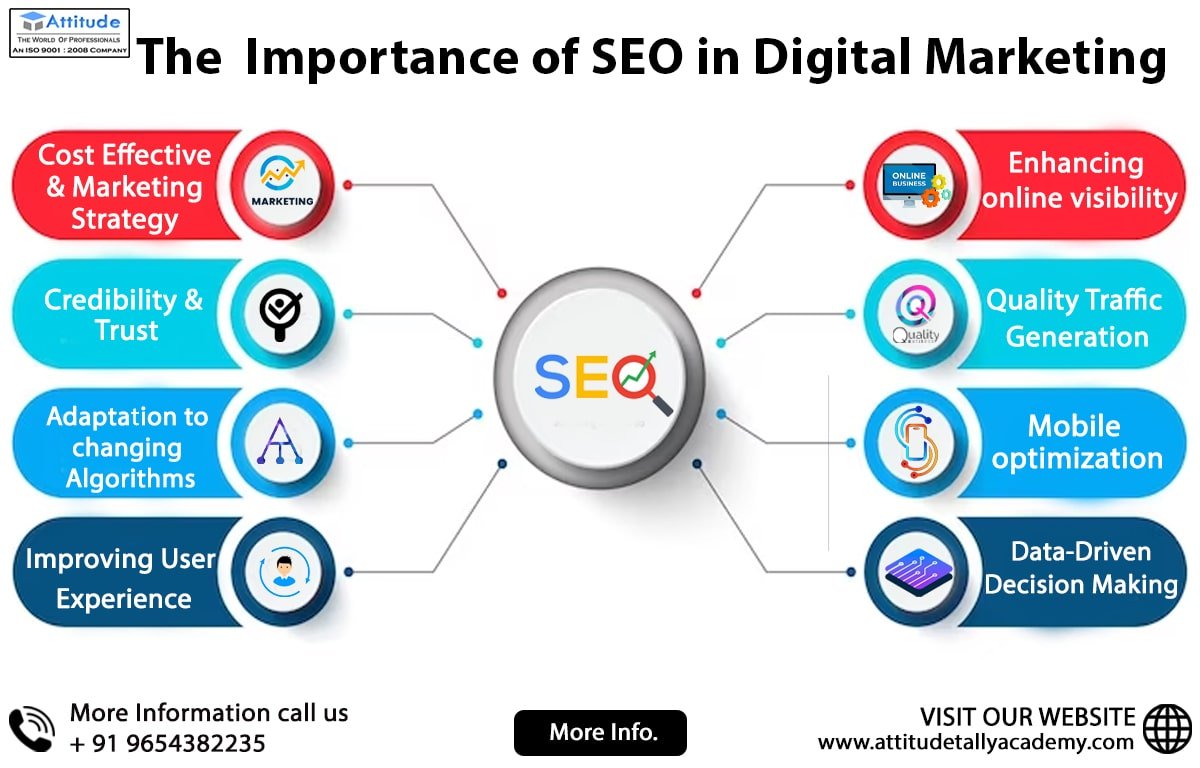
In today’s digital world, SEO (Search Engine Optimization) is essential for ensuring that your website ranks well in search engine results and attracts relevant traffic. Optimizing your website for SEO involves a series of strategies and techniques designed to improve your site’s visibility, user experience, and overall performance. By following a step-by-step approach, you can optimize your website to rank higher in search KomsGro Marketing Solutions engines like Google, attract more organic visitors, and convert those visitors into customers. This guide will walk you through the essential steps to optimize your website for SEO marketing.
Keyword research is the first and most important step in any SEO strategy. It involves identifying the terms and phrases that potential customers are using to search for products or services similar to yours. Start by brainstorming topics related to your business and use keyword research tools like Google Keyword Planner, SEMrush, or Ahrefs to find search terms with high search volume and low competition. Focus on both short-tail keywords (broad terms) and long-tail keywords (more specific phrases) to target a wider range of searches. Once you have a list of relevant keywords, strategically place them throughout your website in key locations such as titles, headers, meta descriptions, and within the body of your content. This will ensure that your website ranks for terms your target audience is searching for.
On-page SEO refers to optimizing the elements within your website to make it more search-engine-friendly. Start by optimizing the most important on-page factors, including your title tags, meta descriptions, headers, and images. Title tags should be concise, relevant, and include your target keyword, while meta descriptions should provide a compelling reason for users to click on your website. Headers (H1, H2, etc.) should be used to structure your content and incorporate keywords where appropriate. Additionally, ensure that your images are optimized by compressing them for faster loading times and using descriptive, keyword-rich alt text. These small but crucial on-page optimizations can significantly impact your rankings and user experience.
User experience (UX) is a key factor in both SEO and conversion rate optimization. Search engines like Google reward websites that provide a positive user experience, so it’s essential to ensure that your website is easy to navigate, visually appealing, and mobile-friendly. Start by improving your site’s design and ensuring that it loads quickly. Use tools like Google PageSpeed Insights to identify and fix issues that could slow down your site. Ensure your website is fully responsive, meaning it adjusts to different screen sizes, especially for mobile devices, as mobile-friendliness is a ranking factor for Google. Additionally, simplify navigation by using a clear menu structure, internal links, and a search function. A great user experience helps reduce bounce rates and encourages visitors to stay longer on your site, which can positively influence your SEO rankings.
Content is at the heart of SEO marketing. High-quality, engaging, and relevant content will not only improve your rankings but also help you build authority in your niche. Start by creating blog posts, product pages, or other forms of content that answer common questions and solve problems for your audience. Incorporate your target keywords naturally throughout your content and ensure that it provides real value. Additionally, use different types of content such as videos, infographics, and case studies to keep your visitors engaged and increase the chances of earning backlinks. Regularly updating your content and adding fresh articles can also help your website stay relevant and boost its ranking potential. Remember, the goal is to create content that addresses user intent while also optimizing it for search engines.
Backlinks, or inbound links, are links from other websites to yours, and they play a critical role in SEO. Search engines view backlinks as votes of confidence for your website, and the more high-quality backlinks you have, the higher your site is likely to rank. Focus on acquiring backlinks from reputable, authoritative sites in your industry. You can build backlinks by creating shareable content, guest blogging, reaching out to influencers, or participating in online forums and discussions. Additionally, check your competitors’ backlink profiles using tools like Ahrefs or SEMrush to identify link-building opportunities. However, it’s essential to focus on quality over quantity when it comes to backlinks. Low-quality or spammy backlinks can harm your SEO efforts, so always aim for links from trusted, relevant sources.
SEO is an ongoing process, and the key to long-term success is constant monitoring and optimization. Use tools like Google Analytics and Google Search Console to track your website’s performance, including organic traffic, bounce rate, and keyword rankings. These tools provide valuable insights into how well your website is performing in search engines and can help you identify areas for improvement. Pay attention to your website’s crawl errors, broken links, and other technical issues that may negatively impact your SEO efforts. Additionally, regularly audit your content to ensure that it remains fresh, relevant, and optimized for the keywords you’re targeting. By continuously analyzing your website’s performance and making necessary adjustments, you can ensure that your SEO efforts are effective and keep improving your rankings over time.
Optimizing your website for SEO marketing is a step-by-step process that requires patience, consistency, and attention to detail. By performing thorough keyword research, optimizing on-page elements, enhancing user experience, creating high-quality content, building backlinks, and continuously monitoring your performance, you can significantly improve your website’s search engine rankings. Remember that SEO is not a one-time task but an ongoing effort that requires regular updates and adjustments to stay ahead of the competition. In 2025, SEO remains one of the most effective strategies for driving organic traffic, improving user engagement, and increasing conversions. By following this guide and staying committed to SEO best practices, your website will be well-positioned to achieve long-term success in the digital marketplace.